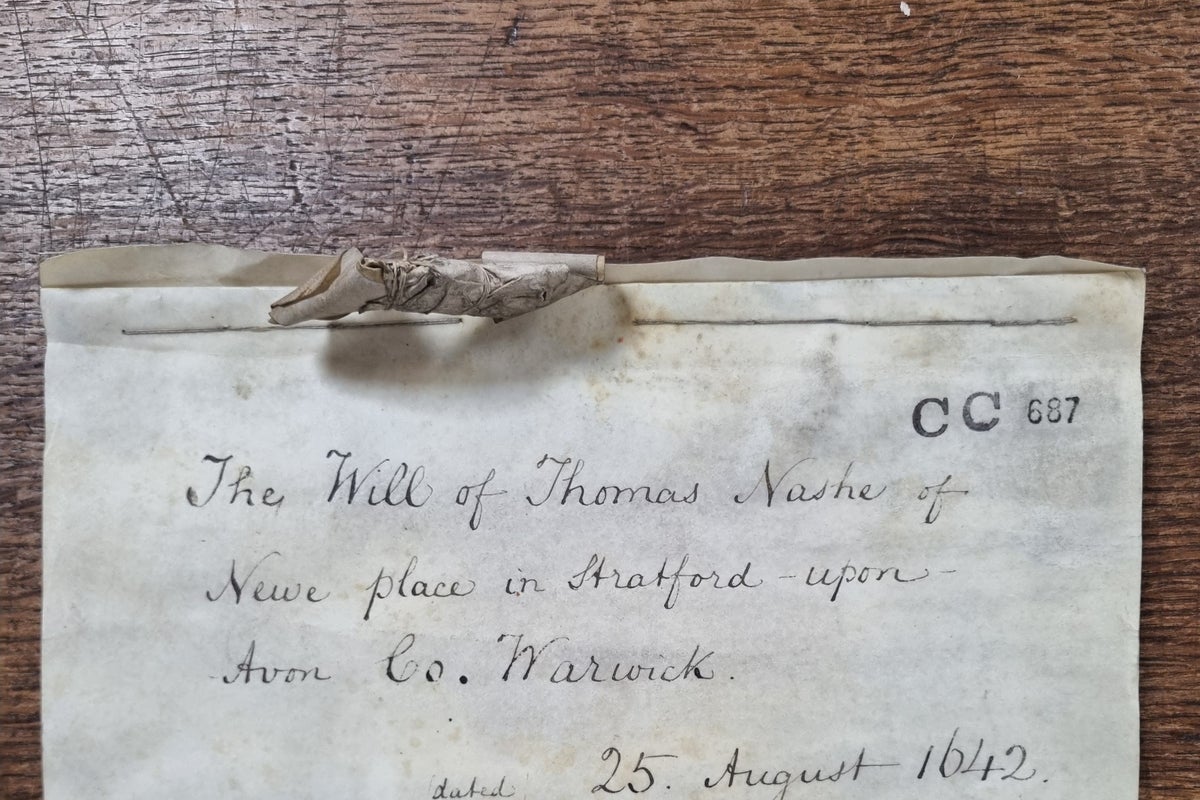
A 17th century will which sparked a family row over William Shakespeare’s grand Stratford-upon-Avon home has been found.
The document, drawn up by Thomas Nash on August 25 1642, was discovered Dr Dan Gosling, a historian at The National Archives, who was looking through unlisted boxes containing hundreds of deeds.
Dr Gosling said he is “confident” that no one had seen the will in 150 years as it was filed away in the late 19th century.
He added that it shows how the execution of Shakespeare’s will “wasn’t entirely smooth sailing”.
Nash was married to Shakespeare’s granddaughter Elizabeth Hall and living in New Place – then The Bard’s family residence and the second-largest house in the Warwickshire town.
But Nash left the property to his cousin Edward – despite having no right to do so.
The house had already been left by Shakespeare to his eldest daughter, Susanna, who was alive and living there with Nash and Elizabeth, who was her daughter.
When Nash died in 1647, Susanna and Elizabeth obtained a legal document confirming that they still held Shakespeare’s estates.
Edward Nash hauled Elizabeth into court the following year, arguing she respect Nash’s wishes.
The case landed in the Court of Chancery – where Elizabeth argued that her late husband had no power to grant Shakespeare’s home and mentioned her grandfather’s bequest to her mother.
Elizabeth, who later became Lady Barnard, is believed to have settled the matter out of court and lived in the residence until her death in 1670, Dr Gosling said.
Dr Gosling told the PA news agency: “My initial immediate reaction when I found it was, ‘oh, this is interesting’, but I got really excited when I started to read about it and how it tied into the Chancery case, how it tied into the Shakespeare family and the last of Shakespeare’s direct descendants.”
